PC is the most 'dominant' it's been this decade as two-thirds of devs say they're targeting the platform
Well, naturally.
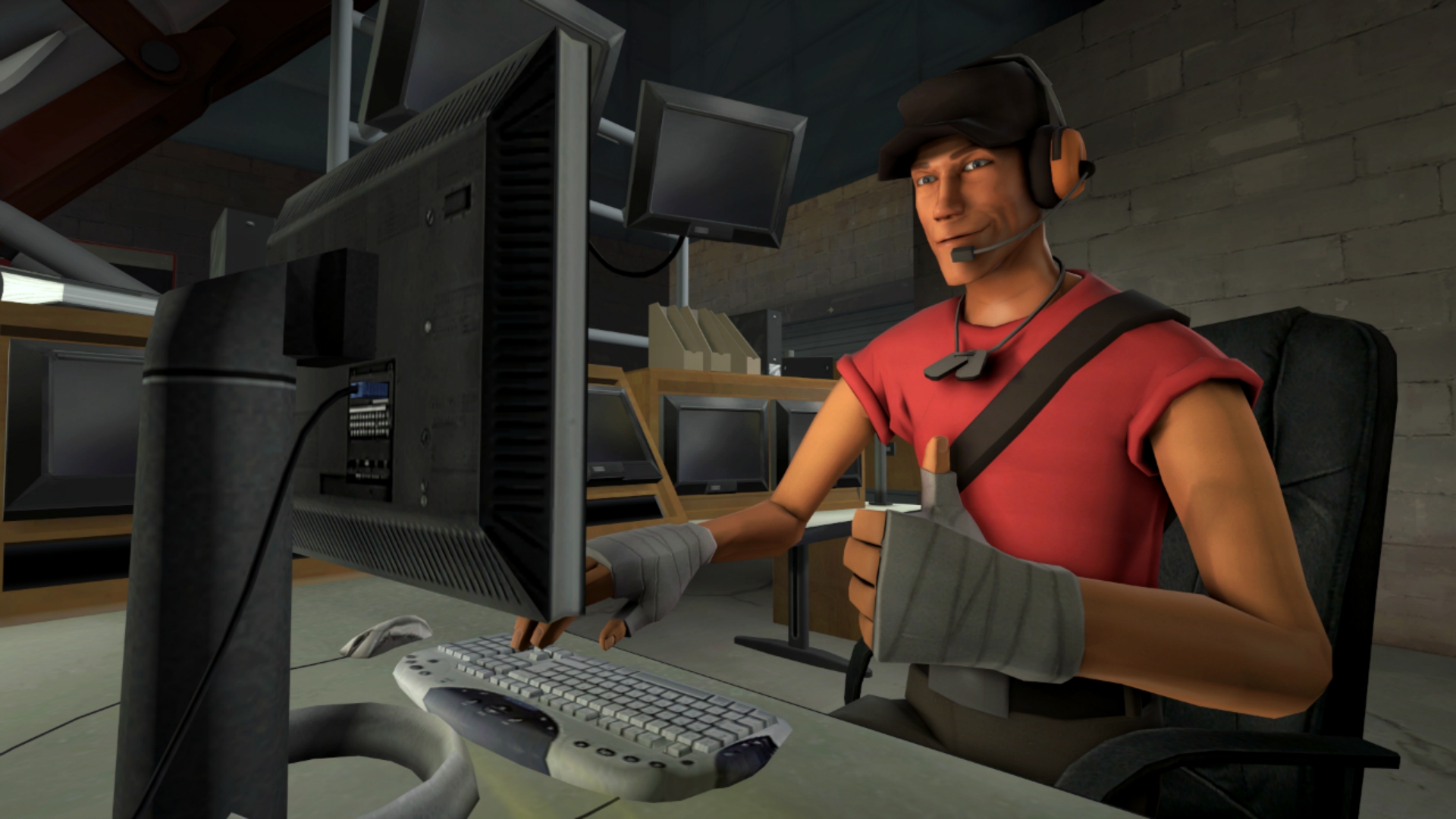
Sometimes, it's nice to hear the things you know in your heart said out loud. Such is the case with the Game Developers' Conference State of the Games Industry 2024 report, the latest edition of GDC's annual look at just what devs are doing.
One of the many, many questions GDC has put to devs over the years is asking which platform they're targeting with their current projects. The answers always range from the obvious (PlayStation, Xbox, Nintendo's console du jour) and the obscure (Playdate, Luna, something called "Google Stadia"), but one platform has been the focus for over half of devs for years: PC.
When asked to select every platform their current projects were in development for, 66% of the over 3,000 devs surveyed by GDC selected PC, far and away ahead of the next most-popular platform: PS5 at 35%. GDC calls the humble personal computer "the dominant platform" even as strange new entrants—like the "Nintendo Switch successor" and "UGC platforms (Roblox, Minecraft)"—begin to appear on the list of responses.
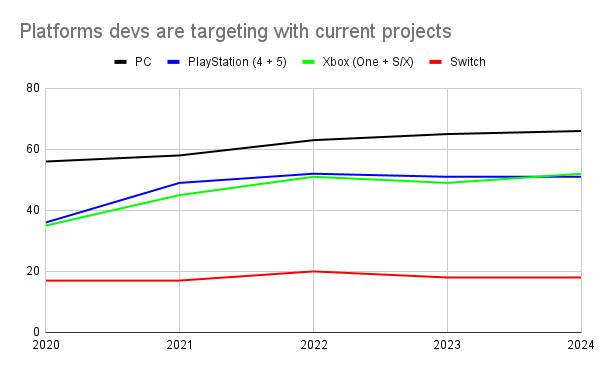
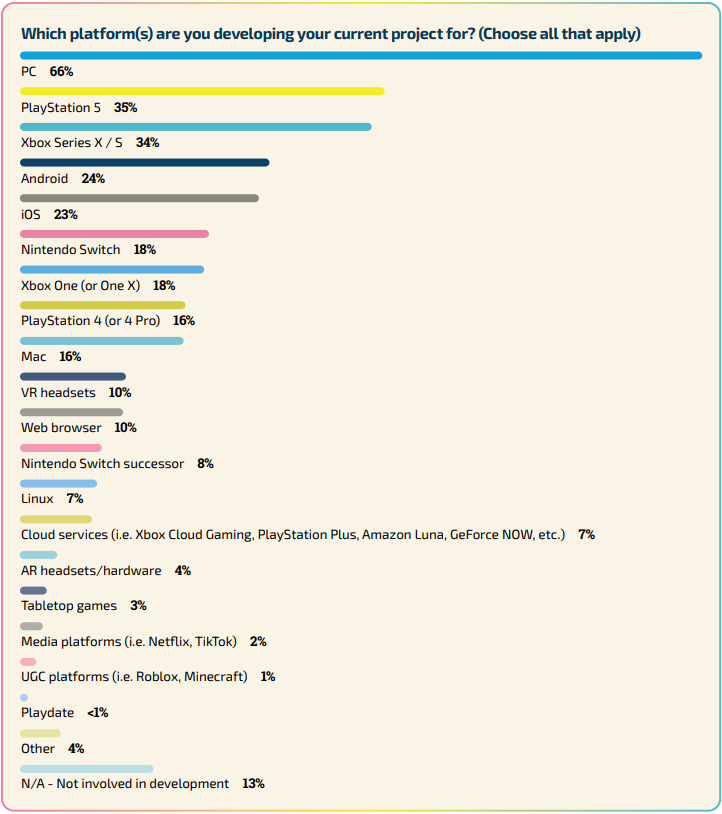
In fact, that number's the highest it's been this decade. In 2020, 56% of devs included PC on their list of targeted platforms, growing to 58% in 2021, then 63% in 2022, 65% last year, and finally hitting 66% in the year of our Lord 2024. Still on top, baby.
The responses to "Which platform(s) most interest you as a developer right now?" are pretty much the same, although respondents choosing PC has dropped ever so slightly since last year. 62% of devs pick PC as their most interesting platform, down from 64% in 2023, but level with 2022 and way up from 50% in 2020.
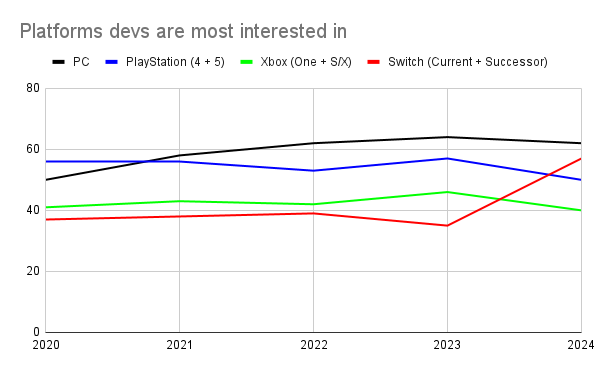
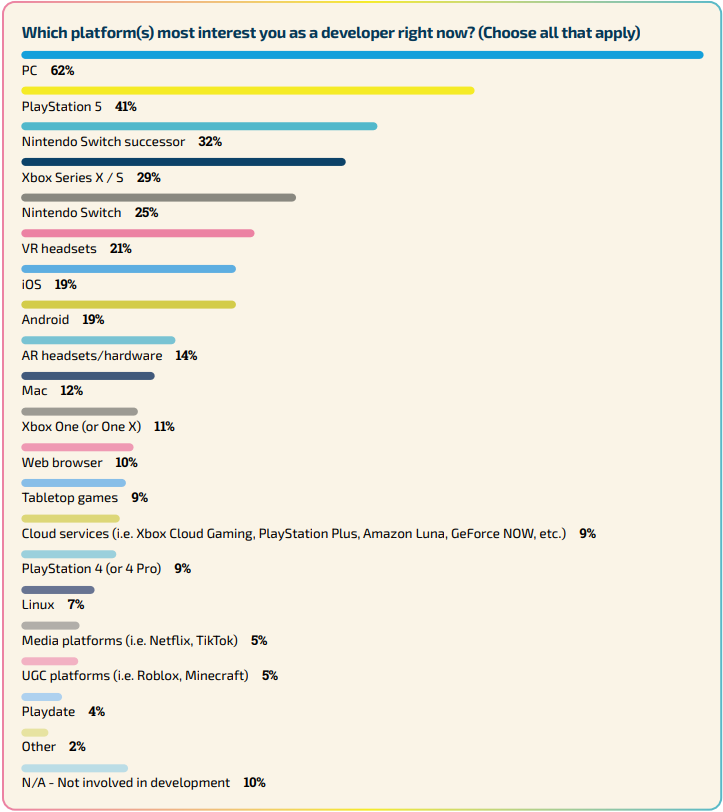
Let's be clear, it's not a huge surprise. A survey targeting this number of devs, a great many of whom are indies, is naturally going to favour a platform as open and relatively easy to release on as the PC. But it's a temperature check of the industry as a whole and, hey, some of us still appreciate the odd antidote to the many times PC gaming has been declared dead. Not that I have a chip on my shoulder or anything.
There are plenty of other factoids for us to take heart in from the 2024 report. First up, 77% of respondents said their studio was flatly "not interested" in blockchain tech like cryptocurrency and NFTs. That's not too far off from the response that question got when it was first asked in 2022 (back then 72% were uninterested in crypto, 70% uninterested in NFTs), but the number of devs who are "somewhat interested" has more than halved, dropping from 21% to 11%. Good job, internet: you continue to have bullied NFTs out of games.
The biggest gaming news, reviews and hardware deals
Keep up to date with the most important stories and the best deals, as picked by the PC Gamer team.
Stay on guard, though: 6% remain stubbornly "very interested," and they can't all be Yves Guillemot.
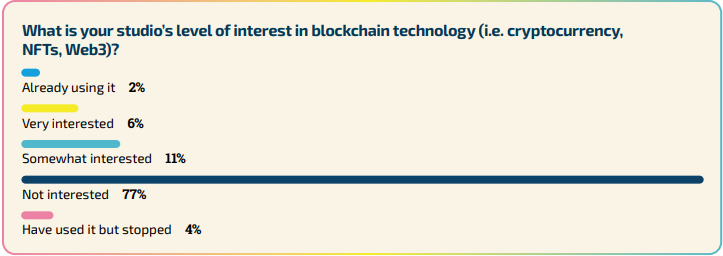
Those are my key takeaways from the survey, although I find the fact that 76% of devs use Twitter and 97% of them are frustrated with it deeply relatable, but they're not the only things worth plucking out. We also learnt that after a buyout-happy pandemic period, devs are growing wary of major acquisitions, and that 31% of them are using generative AI. The future is now, like it or not.

One of Josh's first memories is of playing Quake 2 on the family computer when he was much too young to be doing that, and he's been irreparably game-brained ever since. His writing has been featured in Vice, Fanbyte, and the Financial Times. He'll play pretty much anything, and has written far too much on everything from visual novels to Assassin's Creed. His most profound loves are for CRPGs, immersive sims, and any game whose ambition outstrips its budget. He thinks you're all far too mean about Deus Ex: Invisible War.

